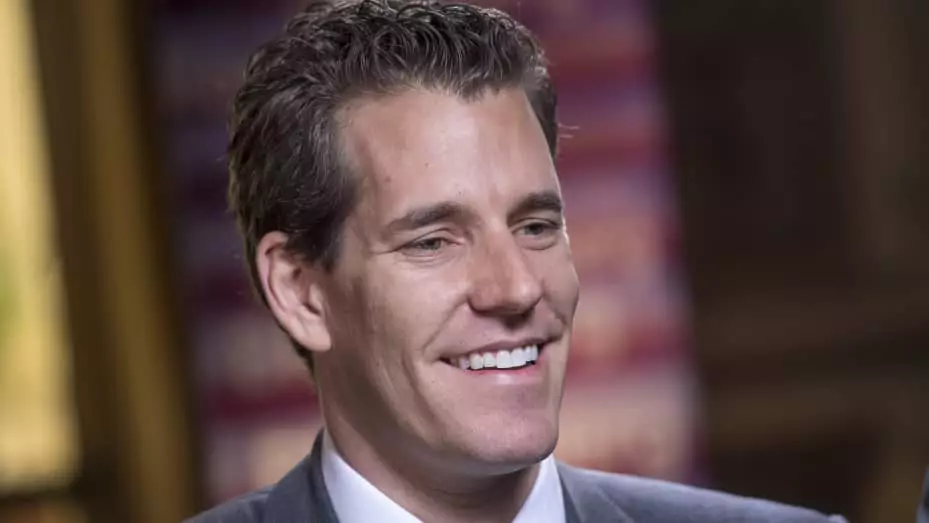The ongoing evolution of the cryptocurrency landscape has inevitably drawn scrutiny from regulatory bodies, particularly the U.S. Securities and Exchange Commission (SEC). Recently, two significant figures within the crypto sphere—Tyler Winklevoss of the Gemini exchange and Brian Armstrong of Coinbase—have expressed their discontent with former SEC officials. Their actions reflect deeper concerns regarding accountability and industry integrity amid perceived regulatory overreach.
Tyler Winklevoss’s decision to align Gemini’s policies with those of Coinbase exemplifies the increasing frustrations among crypto executives regarding past SEC actions. Winklevoss announced his company’s intention to sever connections with any law firms that employ former SEC officials booted from a job linked to anti-crypto measures. This bold stance is inspired by Armstrong’s criticism of the legal entities that continue to support individuals responsible for regulatory decisions that many in the community view as hostile to digital assets.
Through a posting on the social media platform X, Winklevoss has called for an ongoing catalog of these SEC officials, whom he labels as participants in an “unlawful war on crypto.” This characterization underscores a growing sentiment that the SEC’s regulatory framework has stifled innovation and growth within the digital asset sector. By taking a public stand, Winklevoss illustrates the rising demand for accountability from regulatory bodies, pushing for a more transparent operational environment where the impact of past decisions can no longer be obfuscated through professional connections.
Central to this discourse is the recent controversy surrounding the SEC’s legal maneuvers, particularly its protracted case against Ripple Labs. The departure of Gurbir Grewal, former Director of Enforcement, raises eyebrows in the legal community, especially given his pivotal role in over a hundred enforcement actions before he resigned. His exit, timed closely with the SEC’s appeal related to Ripple, has led to speculation about internal conflicts within the agency. This sequence of events has left critics questioning the motives of the SEC’s leadership, with many suggesting the agency’s aggressive tactics might backfire and ultimately weaken its grip on crypto regulation.
Armstrong has voiced concern that the ‘war on crypto’ initiated by the SEC comprehensively threatens the vitality and viability of the crypto industry. He insists that the ongoing chaos and uncertainty surrounding regulations must not just be tolerated but actively challenged. This challenges not only the SEC but also those who turned a blind eye to the agency’s shifts in policy during their tenures. Armstrong’s stance that former officials should not benefit from the industry they once regulated underscores a call for ethical standards in how regulatory bodies interact with the sectors they oversee.
The Future of Crypto and Legal Ethics
The proposals by influential figures like Justin Sun—to extend job offers to those leaving the SEC—illustrate a potential shift in the industry’s approach to regulatory figures. Sun’s offer to Gary Gensler, conditional on his newfound respect for digital assets, is emblematic of the crypto industry’s desire for a cooperative adjacency rather than adversarial confrontations. However, it also raises questions about ethics in hiring practices within a space continuously marred by the impact of past policies.
Winklevoss and Armstrong’s current actions reveal a critical threshold in the crypto industry’s evolution where accountability is increasingly expected from both regulatory bodies and legal participants. Their positions serve as a rallying cry for the broader community to demand accountability and responsibility among those who have historically wielded considerable power over the sector’s operations.
The challenges being faced in the crypto arena highlight the complex interplay between regulatory oversight and business integrity. As Tyler Winklevoss and Brian Armstrong make clear, a collective push for transparency and ethical conduct is needed not only to navigate current obstacles but also to chart a sustainable course for future growth. Their stances are a reminder of the power each stakeholder holds in the quest for a more equitable crypto environment, advancing the dialogue on how the industry can progress while maintaining accountability in every interaction, particularly with those who have previously shaped its regulatory framework.









Leave a Reply